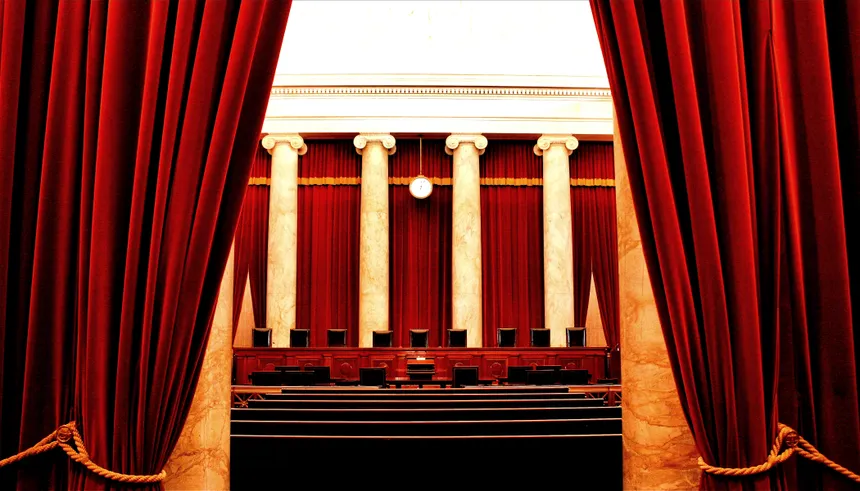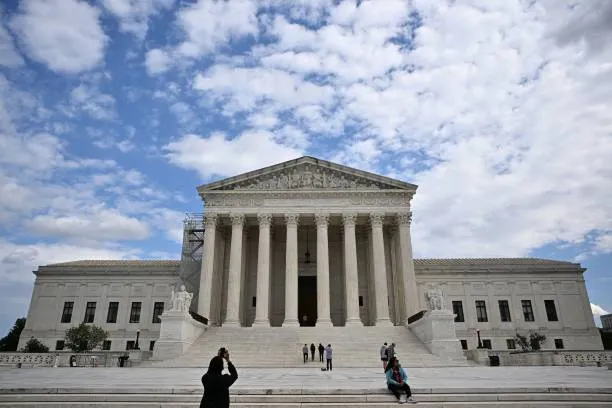The U.S. Supreme Court has taken up a high-profile case that could redefine digital rights and online censorship laws. As concerns grow over Big Tech’s role in regulating content, this case has sparked debates about free speech, government regulation, and platform accountability.
Understanding the Case: What’s at Stake?
The case revolves around whether social media companies have the right to regulate and censor content on their platforms or whether such regulations violate First Amendment rights. The Supreme Court’s decision will set a precedent for digital rights, potentially changing the way online speech is governed.

Key Issues Being Debated
- Government vs. Private Companies: Does the government have the authority to dictate how private platforms regulate content?
- First Amendment Rights: Are social media companies restricting free speech by removing or suppressing certain posts?
- Big Tech Power: Do companies like Facebook, X (formerly Twitter), and YouTube have too much control over online discourse?
- Misinformation & Hate Speech: Should platforms be allowed to remove harmful content, or does that amount to censorship?
- User Rights: How will this decision impact the way users interact on social media?

Background: How Did This Case Reach the Supreme Court?
This case stems from legal battles in multiple states, particularly Texas and Florida, which introduced laws aimed at limiting how social media companies can moderate content. These laws were challenged in lower courts, leading to mixed rulings, and now, the Supreme Court is stepping in to make a final decision.
Timeline of Events:
- Texas & Florida Laws Introduced: In response to concerns about alleged bias against conservative voices, both states passed laws restricting social media moderation.
- Tech Companies Fight Back: Major tech platforms argued these laws violate their rights as private companies to manage content.
- Lower Court Rulings: Federal courts issued conflicting decisions—some supporting state laws, others siding with tech companies.
- Supreme Court Steps In: The case has now reached the highest court, where justices will decide the future of online speech regulations.

Arguments: What Are Both Sides Saying?
Supporters of Social Media Regulation (Texas & Florida Laws)
- Claim social media companies are suppressing certain political views.
- Argue that platforms act as “public squares” and should not limit speech.
- Believe laws will protect users from unfair censorship.
Opponents (Tech Companies & Free Speech Advocates)
- Argue that private companies should have the right to control their platforms.
- Warn that these laws could force platforms to allow harmful or false information.
- Fear that such regulations could set a dangerous precedent for government interference in digital spaces.
How This Case Affects Free Speech & the Internet
If the Supreme Court upholds the state laws, tech companies may be forced to change how they moderate content. If the laws are struck down, social media platforms will retain their ability to regulate posts as they see fit.
Potential Outcomes & Consequences
- For Users: Could impact what content is visible and how moderation policies work.
- For Tech Companies: May lead to changes in terms of service and stricter content guidelines.
- For Lawmakers: Could inspire new digital regulation laws nationwide.
- For Content Creators & Journalists: Affects their ability to share opinions without fear of platform action.

What Happens Next?
The Supreme Court is expected to hear arguments and release a ruling within the next few months. Regardless of the outcome, this decision will shape the future of online speech, digital rights, and the power of Big Tech. Experts suggest that a ruling in favor of state regulations could lead to a new wave of legislation nationwide, setting stricter limits on how tech companies moderate content. On the other hand, if the Supreme Court sides with social media platforms, it could reinforce the power of Big Tech in determining what content remains online. This decision may also influence upcoming elections, as digital platforms play a crucial role in political discourse. Additionally, the ruling could impact global internet policies, as other countries look to the U.S. for guidance on regulating digital spaces.
Stay tuned for updates as the case develops!
Scientists Achieve Historic Nuclear Fusion Breakthrough: Unlimited Clean Energy Soon?






